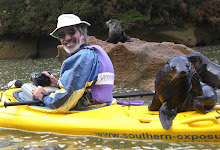
Math 112 met in room 304 of the University of Arizona Modern Languages Building. It struck me as I walked into the classroom that it has been about 37 years since I took a class there.
Professor Stephen Reyes was already in the classroom and most of the seats were already taken. I sat down toward the front of the room on the right as I faced the front.
I noticed that there was an American flag on the wall and the same copy of the U.S. constitution that had been posted in my last classroom. That made me wonder whether there was some kind of mandate that required those objects to be displayed and whether the School of Journalism was in violation.
The classroom actually looked modern. The white boards all around the room were clean and there were plenty of markers in various colors in the trays attached to the boards. And there was a computer terminal on the desk up front. Did I land in a 21st century classroom?
There are 35 students enrolled in the class, mostly women, all except for me, about 18 or 19 years old.
AT 11 a.m. sharp Prof. Reyes started class.
I don't know anything about him yet, but Reyes is listed as a full time instructor, rather than either a graduate teaching assistant or professor. He looks like a newly minted Ph.D. in his late 20s. I found myself imagining Seth in his position in just a few years.
He spoke slowly and softly and was organized and professional. It was beginning to feel like I lucked into a good class.
He conducted a roll call, went through his syllabus, and moved right into material. "What exactly is a function?" he asked. And students actually raised their hands, suggested answers, and the class began.
